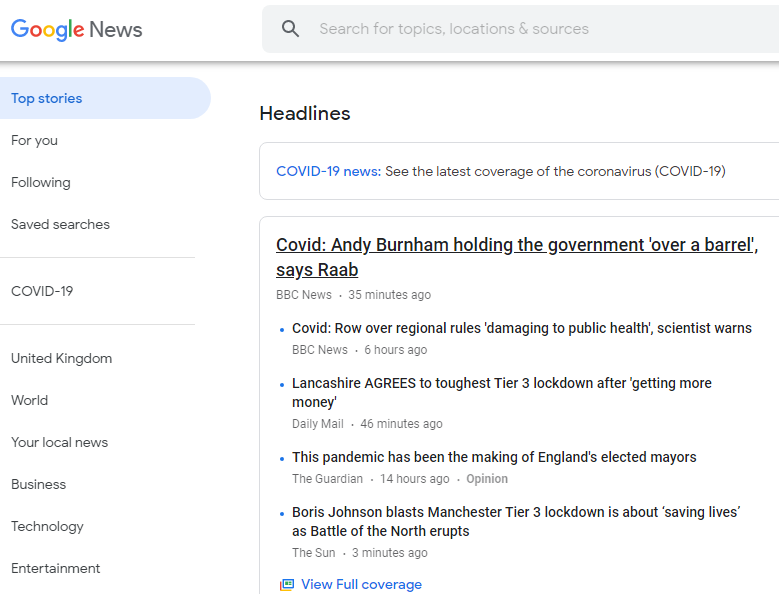
A senior ad account director has urged newsbrands to “capitalise on this moment” as Covid-19 disinformation means brands are becoming more wary of spending with online platforms.
Demi Abiola, UK publishing director at PHD Media, said advertisers’ understanding of the impact of where they put their money has been brought into “clearer focus” since the start of the pandemic.
Abiola made the comments on a panel discussion to promote Newsworks’ World Without News survey, which found two-thirds of Brits – and 77% of those under-36 – appreciate journalism more since Covid-19 hit.
- To find out more about the future of marketing, download Lead Monitor’s white paper: B2B marketing after a pandemic: 8 key lessons for senior marketers
- Sign up for Press Gazette’s Marketing Matters email newsletter here
The study also found 70% of people believe a world without journalism would harm democracy and that 63% feel less anxious when they read a newspaper compared to stories on social media.
Abiola said newsbrands were “firmly back on the agenda” because they are built around trust and transparency.
This “makes them incredibly more desirable in the current climate,” he said, especially as brands now have to be more visible and transparent than ever themselves.
“It’s vitally important for newsbrands… [to] capitalise on this moment because with this acute focus on brand safety and environment we really need to be talking about… in the overall media mix, why they’re so important,” Abiola said.
“If you look in terms of scale, context and fairness, that’s what really makes them stand out.
“They don’t want to be associated with fake news, they don’t want to be associated with disinformation, so what we really need to do as a publishing industry, as a news industry, is really sing loud and sing proud, and say why we’re a great medium to be advertising with at the moment given all of this disinformation that’s happening on other media platforms.”
Abiola also urged advertisers to “reappraise and re-evaluate the importance of reliable context and carefully curated content” and shout “about how newsbrands and investment in high-quality environments is really important”.
In its report, national newsbrand marketing arm Newsworks said: “It’s easy to think of newsbrands as offering a channel in which to make announcements about a product or service. However, this misunderstands the role they play in society and the mindset people are in whilst reading the news.
“Newsbrands are the place where thinking happens, where new ideas are evaluated and understood. They offer brands a chance to be present as minds are being made up.”
The report pointed to IPA TouchPoints data released in September that found a 9% increase in trust in national newsbrands during lockdown, despite declining levels of trust in media and advertising over the past decade.
The study showed how the rise in the use of news aggregators “serves to further highlight the significance of news brands” – particularly among younger audiences.
It found that 56% of news consumers agreed that apps such as Apple News and Google News have made them take more notice of newsbrands. This figure rose to 64% for the under-35s.
Moreover, 59% of Brits and 69% of under-35s said news aggregators had helped them appreciate newsbrands more.
Newsworks also claimed under-35s were “the most likely to change their opinion and behaviour based on what they see and read from newsbrands”.
Denise Turner, insights director at Newsworks, tried to debunk what she called the myth that appreciation of journalism will fall away after the coronavirus pandemic is controlled.
She said: “The pandemic has been unprecedented times, but if you remember back all that time ago we had Brexit and that seemed to be an obsessive focus to people. Readership has been growing over time. We saw spikes during the heat of the pandemic but they haven’t fallen away again
“I don’t think it’s necessarily [the case] that it will all fall away again after the pandemic. I think it’s building habits that will stand the test of time.”
Some 80% of people told the survey it was easier to chat to other people when they were up to date with the news – and that newsbrands were better at helping people connect than social media.
Seven-in-ten people said they trusted newspapers “to be on top of all the news stories at the time” and 82% were impressed with the variety of news, including stories they had not previously heard about, featured in newsbrands.
A further 82% said news helps them make sense of complex issues, with76% finding it useful to have analysis of news stories in their newspaper, while 80% said it was a “good way of knowing what other people think”.
Some 63% agreed that they identify with their newspaper’s point of view, with Turner noting we are now a “nation of portfolio readers” who seek out a more diverse range of voices.
This means more cross-readership: for example, she said around half of Times readers will also read the Express every week.
Ian Murray, executive director of the Society of Editors, said the report’s “heartening” results “give a lie to those who would constantly attack the mainstream media – be they politicians, influencers, celebrities, those with power and authority – as vessels of misinformation and so-called fake news”.
“The public, it appears, thinks otherwise.”
Email pged@pressgazette.co.uk to point out mistakes, provide story tips or send in a letter for publication on our "Letters Page" blog
